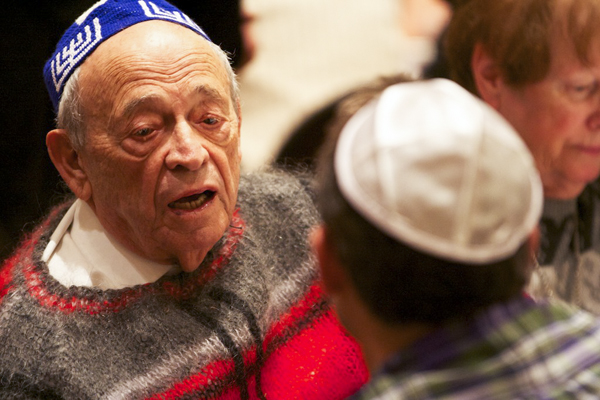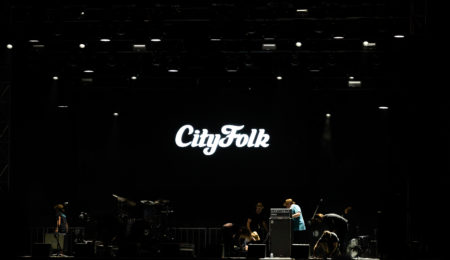Holocaust survivors share their stories at dinner with Ottawa students
Photo by Scott Goldstein
To fully understand how horrific the Holocaust was, Hillel Ottawa connected local students with survivors at a dinner on Nov. 7.
Ten Holocaust survivors sat down with over 150 people, including 130 students from both the University of Ottawa and Carleton University, at the Beth Shalom Ballroom on Chapel Street.
For the fifth year in a row, Hillel Ottawa, a chapter of an organization that supports Jewish students at a number of Canadian universities, welcomed Ottawa residents to its annual dinner. The event is part of Holocaust Education Month, a series of events in November organized with the goal of building awareness about the Holocaust.
“This year we really wanted to target students,” said Noah Borer, the student life coordinator for Hillel. “We find it really important that students experience and learn as much as possible from the survivors—to get the stories straight from their mouths.”
At the event, attendees ate kosher food with the survivors, who sat spread out among the tables around the room. The night began with a speech by Carleton University student Sarah Spitz. She shared the story of her grandmother Inge Spitz, who was among a group of Jewish children that escaped from Germany in 1939 and who later helped another group of children escape to Switzerland.
U of O alumnus Ryan Adelson followed by sharing her experience travelling with March of the Living, an organization that sponsors trips to Poland and Israel for Jewish students in an effort to educate them about Jewish history and the difficulties Israel currently faces.
After dinner, guests were invited to go around to each table to ask the survivors questions, hear their stories, and look at pictures and other artefacts they brought with them.
Czech singer Moshe Kraus was among the survivors at the event. When he was 20 years old he was sent to Bergen-Belsen, a concentration camp in Germany—the same concentration camp where Anne Frank died of typhus in March 1945. Kraus remained there for three years, until British forces liberated the camp in 1945.
While hearing about the horrors he endured, Carleton student Fatma Feyza Celik was struck by Kraus’s positivity.
“While in the concentration camp, he sang songs to lift the spirits of the people around him,” Celik said. “One of the things that he constantly brought up was that not all Germans were bad, that there are good people and bad people in any nationality and that many Germans were forced into it.”
Celik was glad to have gained a more personal perspective by hearing those stories.
“It’s not just a bunch of numbers,” she said. “These are real people that went through these difficulties. I loved having the opportunity to hear their stories firsthand.”
Meanwhile, survivors were grateful to have the opportunity to educate people about what happened. Louis Lemkow, one of the survivors, decided to speak again to about a dozen students at Carleton a few days after the event.
“He was so moved by the dinner that he wanted to share his story with students who didn’t have the chance to talk with him at the dinner,” Borer said.
Spitz observed that many survivors had “smiles on their faces while they had students sitting there wide-eyed wanting to listen to them.”
The event was a reminder that survivors of the Holocaust are now a part of educating future leaders. Spitz’s grandmother used to tell her, “If I could look Hitler in the eye I would say to him, ‘Hitler, we are here, you did not succeed.’”
For those interested in learning more about the Holocaust, the Canadian War Museum is holding a free exhibit called “Jan Karski’s Mission for Humanity” until Nov. 29.





